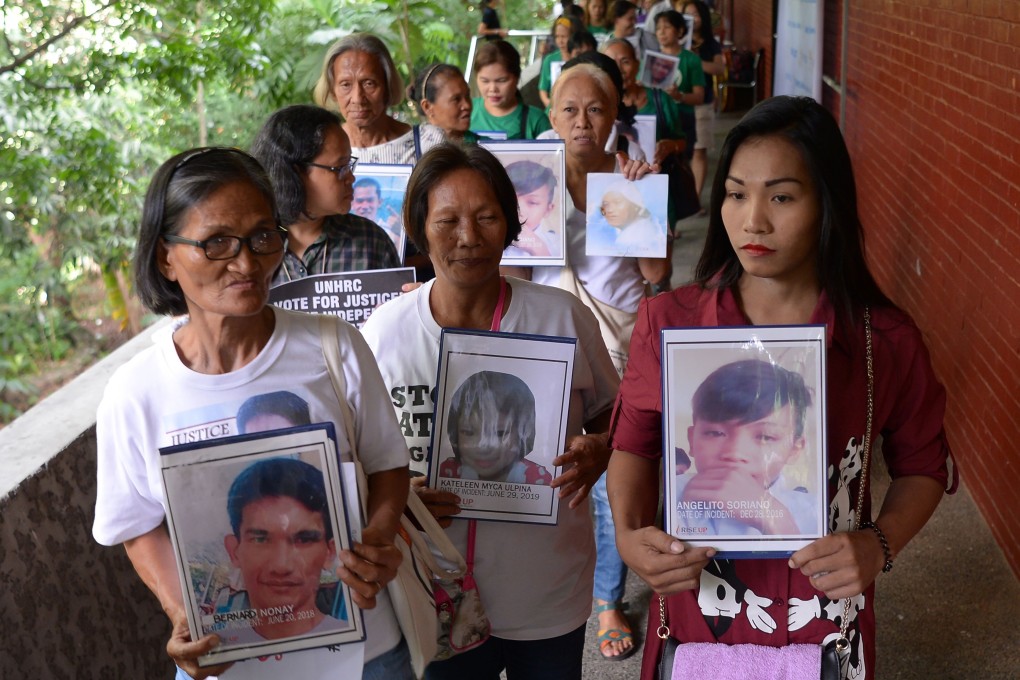Advertisement
UN probe into Duterte’s Philippines drugs war welcomed by activists – but Manila calls move an ‘insult’
- Activists say the UN investigation will help Filipinos get accountability for the ‘spate of killings’, which has claimed the lives of even toddlers
- Manila has lambasted the move as baseless and disrespectful, while Duterte mocked Iceland over its role in spearheading the UN resolution
Reading Time:3 minutes
Why you can trust SCMP

Human rights defenders in the Philippines have cheered the United Nations’ decision to investigate mass killings committed during President Rodrigo Duterte’s “war on drugs”, even as the country’s foreign ministry has slammed the decision and warned of “far-reaching consequences”.
Ephraim Cortes, the Secretary General of the National Union of Lawyers, said he was heartened that Filipinos would get accountability over “the spate of killings”.
Last month, a three-year-old child was shot in the head after her father, a suspected drug dealer, used her as a shield in a police raid in Manila.
“This is the first time an investigation [will take place] in a country where there’s no civil war; the UN will intervene and investigate the killings,” Cortes said.
Advertisement
Duterte’s government says police have killed about 6,600 people in shoot-outs with suspected drug dealers since he was elected in 2016 on a platform of crushing crime. Activists dispute the official figure, saying the toll is at least 27,000.

Advertisement
On Thursday, the first UN resolution on the Philippines, led by Iceland, was adopted by a vote of 18 countries in favour, 14 against, including China, and 15 abstentions, including Japan.
Advertisement
Select Voice
Select Speed
1.00x